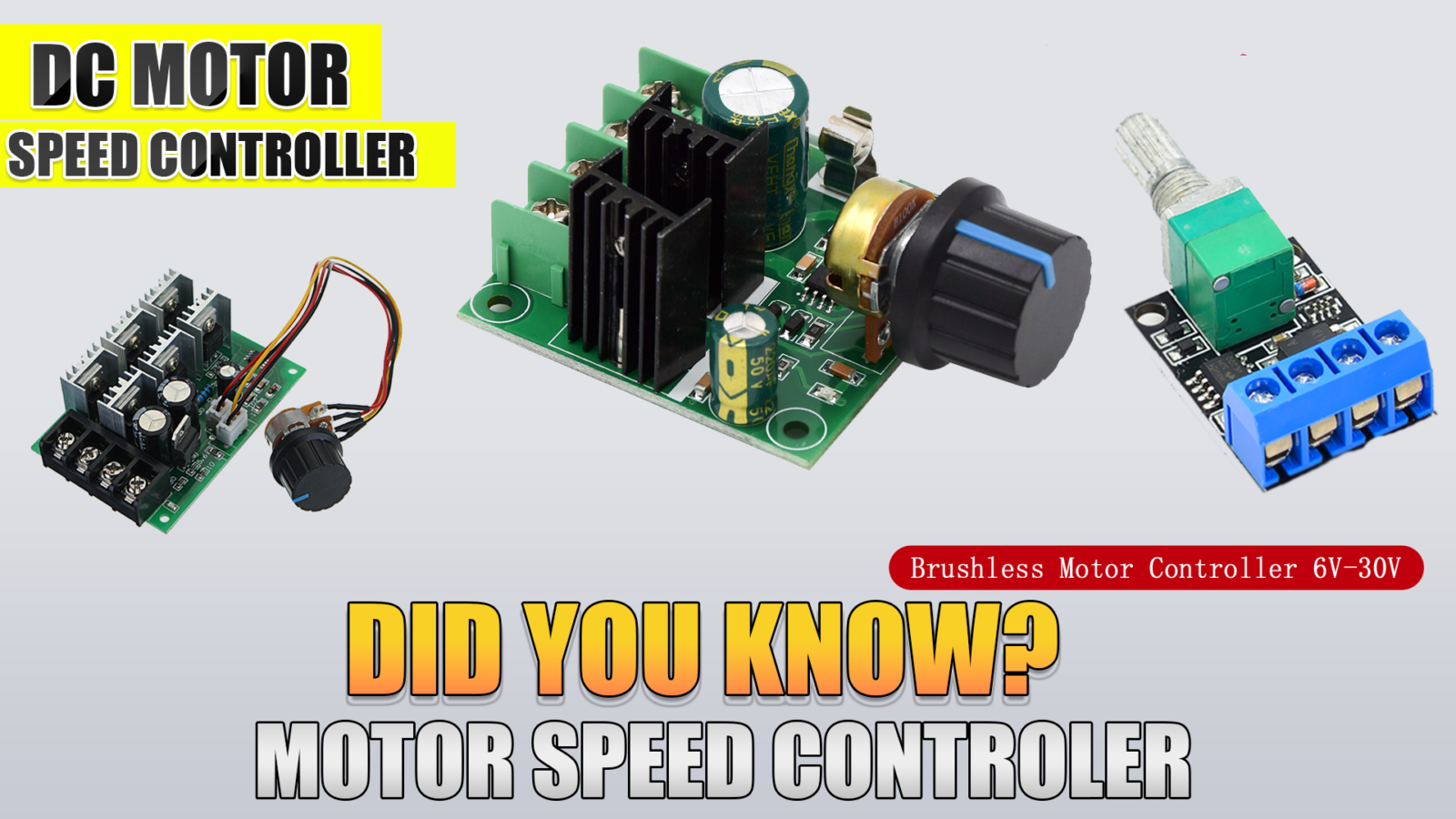400W DC Motor Speed Controllers: Efficiency, Control Techniques, and Applications
DC motors are widely used in various applications, ranging from robotics to industrial machinery. To achieve precise speed control and optimize performance, a reliable motor speed controller is essential. In this article, we will delve into the intricacies of 400W DC motor speed controllers. We will explore their efficiency, control techniques, and applications, providing a comprehensive guide for engineers and enthusiasts alike.
Understanding DC Motor Speed Control
Before delving into the specifics of 400W DC motor speed controllers, it’s crucial to understand the basics of DC motor speed control. The voltage applied across motor terminals is directly proportional to the speed of the motor. To control the motor’s speed, we need to manipulate this voltage. Various speed control methods include armature voltage control, field flux control, and pulse-width modulation (PWM).
The Significance of 400W DC Motor Speed Controllers
400W DC motors find application in numerous areas, including small-scale automation, robotics, and electric vehicles. These motors require precise speed control for optimal performance and efficient power consumption. A dedicated 400W DC motor speed controller provides the means to achieve this control, enabling smooth and precise operation across various applications.
Efficiency Considerations
Efficiency is a vital aspect of any motor control system. A well-designed 400W DC motor speed controller can enhance overall system efficiency, leading to reduced energy consumption and improved motor performance. To achieve high efficiency, several factors should be considered:
- Voltage Regulation: The speed controller should maintain a stable output voltage to the motor, compensating for load variations and input voltage fluctuations.
- Control Algorithm: Implementing efficient control algorithms, such as proportional-integral-derivative (PID) controllers, can optimize motor speed regulation and response time.
- Power Loss Minimization: The speed controller design should minimize power losses in its electronic components, such as transistors and diodes, through proper selection and efficient circuitry.
Control Techniques for 400W DC Motor Speed Controllers
Armature Voltage Control:
This technique adjusts the voltage applied to the motor’s armature, directly influencing its speed. It involves using power electronics devices, such as transistors or thyristors, to control the armature voltage and, subsequently, the motor’s rotational speed.
Field Flux Control:
In this method, the magnetic field strength of the motor is adjusted by controlling the field current. By altering the field flux, the motor speed can be regulated effectively.
Pulse-Width Modulation (PWM):
PWM is a widely adopted technique that regulates the average voltage applied to the motor by rapidly switching the voltage on and off. By varying the duty cycle of the PWM signal, the effective voltage across the motor is controlled, thus altering its speed.
Applications of 400W DC Motor Speed Controllers
The versatility of 400W DC motor speed controllers makes them suitable for various applications, including:
- Robotics: Precise control of motor speed is essential in robotics for smooth movement, accurate positioning, and manipulating objects.
- Automation: These controllers find application in automated systems such as conveyor belts, packaging machines, and assembly lines, where precise speed control enhances efficiency and productivity.
- Remote Control Cars: 400W DC motor speed controllers play a vital role in Rc car’s propulsion systems. They enable efficient speed control and overall system performance optimization.
The advancement in DC motor speed control technology has greatly improved the efficiency and versatility of motor-driven systems. In the case of 400W DC motor speed controllers, their ability to deliver precise control, combined with their optimal power rating, makes them invaluable across various applications. Engineers and enthusiasts can benefit from these controllers to achieve efficient motor control, leading to enhanced performance, reduced energy consumption, and improved overall system productivity. Understanding the different control techniques and applications of 400W DC motor speed controllers is crucial for selecting the appropriate solution to meet specific requirements. By harnessing the power of these speed controllers, the potential for innovation and optimization in motor-driven systems is virtually limitless.
Link to buy:
Watch the video on Youtube:
 Cart is empty
Cart is empty 


Leave A Comment